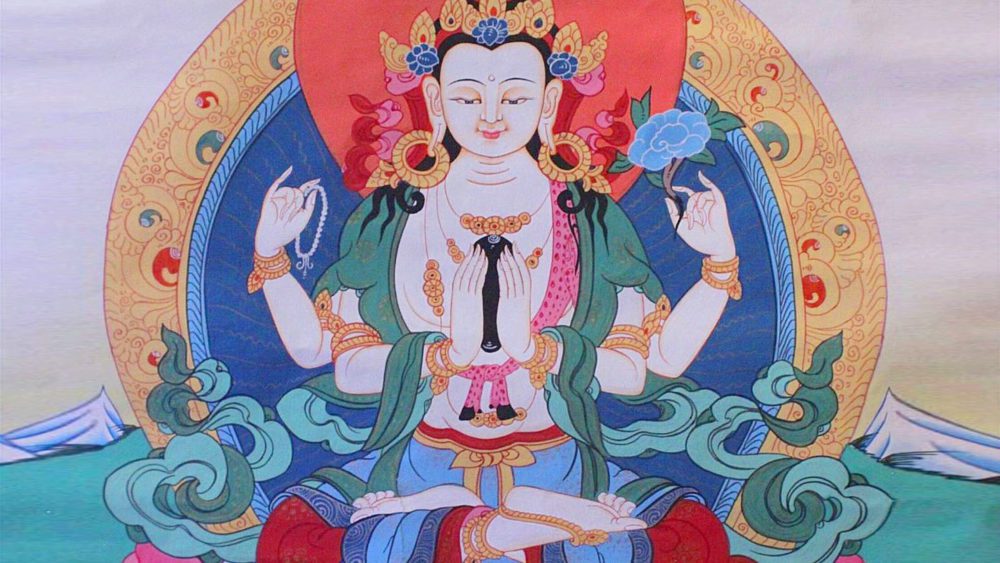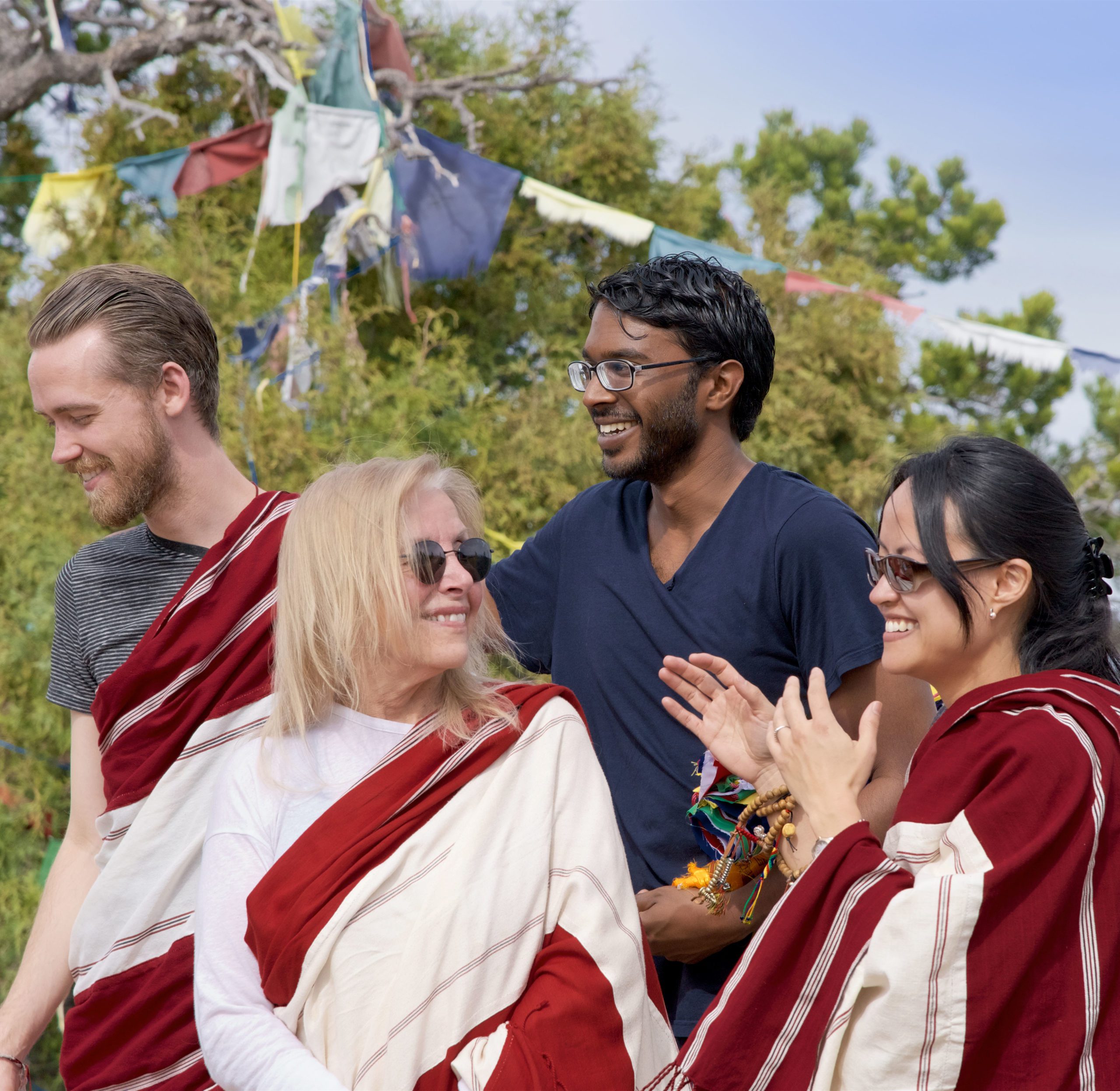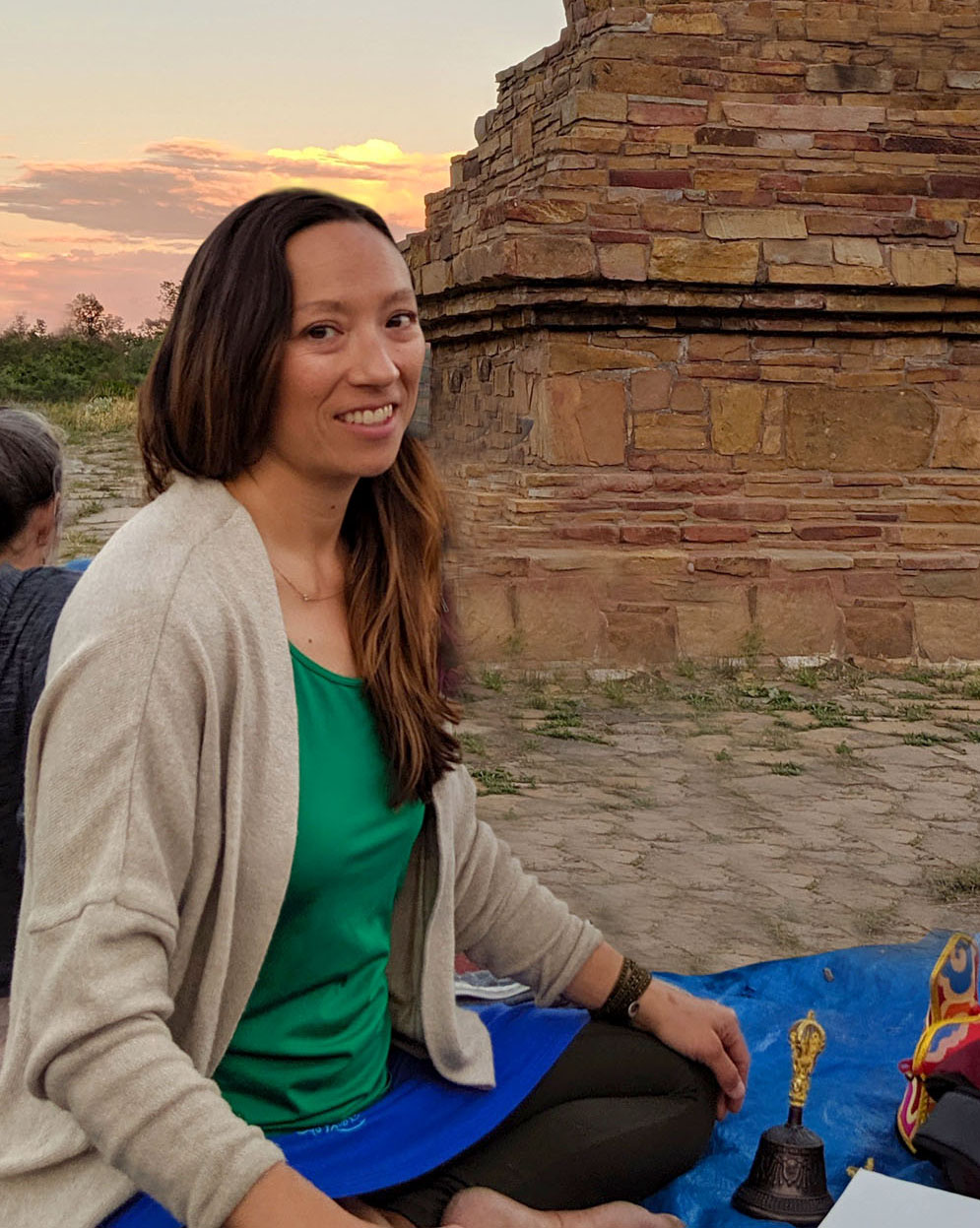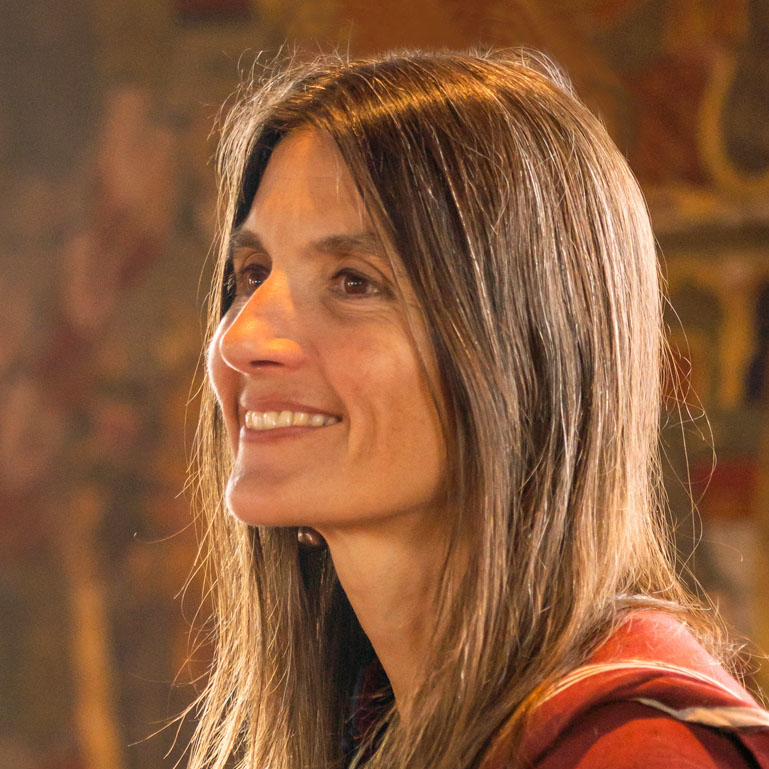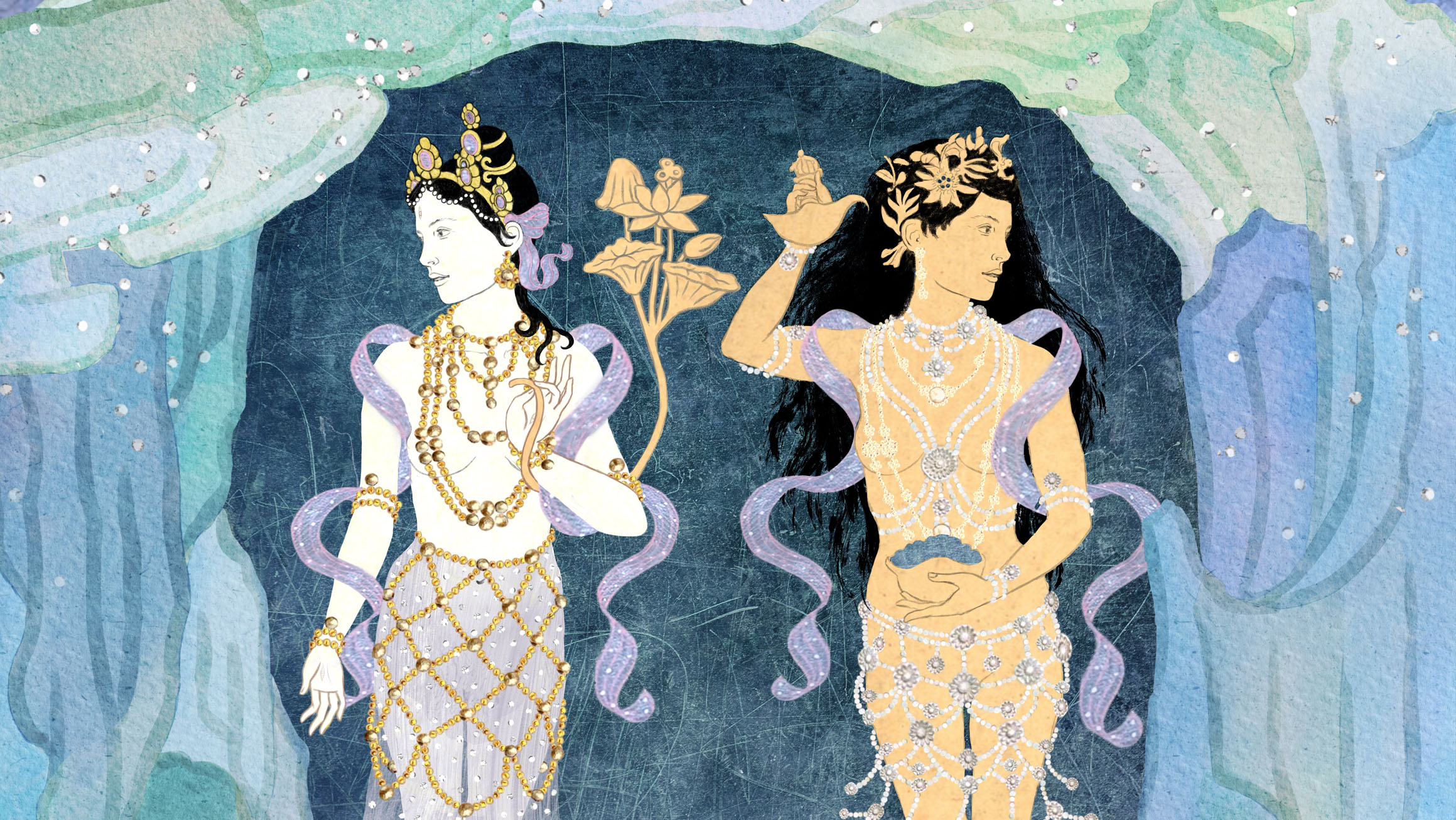This post was written by Dorje Lopön Charlotte Rotterdam, and is posted here with her permission.
This blog post celebrates Tara Mandala’s new Share the Dharma initiative – specially selected retreats offered in a “pay it forward” based system, so we can all access Buddhist practices and teachings.
Our first Share the Dharma offering is the virtual retreat “Living Compassion: Embracing the Joy and Courage of an Open Heart” with Dorje Lopön Charlotte Rotterdam and Lopön Pieter Oosthuizen, on the December 11 – 12 weekend. For more information about this retreat, click here.
Everyday Compassion: Minding the Stranger
It’s easy to feel compassion for those closest to us, our loved ones or those who have been generous to us. Our care arises almost of its own accord. On the other end of the spectrum is the goal of feeling love and compassion for our enemies; this is the lofty aim of many traditions that invite us to extend understanding and kindness even to those whom we most dislike.
Traditional Loving-kindness Practice as taught in certain Buddhist traditions cultivates wishes for well-being, health, and happiness initially for those closest to us—our loved ones and those who contribute positively to our lives—as well as for ourselves. Gradually, the practice extends in ever-widening circles of care to include even the most difficult people, and eventually all beings everywhere.
Somewhere between our loved ones and our enemies lies the mass of “neutral” people, as they are sometimes referred to in Loving-kindness Practice. These are the strangers in our lives, those we just barely interact with, or whom we will never know. In the cast of characters of our personal movies, the “neutral” people are the extras; unlike our heroes and our villains, their names never make it onto the credits. They are the ones that make a city seem bustling; they fill the other tables at a restaurant. For many of us, they are also the ones who sew our jeans, pick our apples, assemble our cars.
I’ve developed a particular appreciation for this section of the practice because it calls on the development of mindful awareness in addition to the cultivation of loving-kindness and compassion. Neutral people are usually the people we don’t see or are only superficially aware of. We don’t necessarily need to care about them either positively or negatively. Yet, if we stop to reflect even briefly, it is actually these so-called “neutral” people who make our everyday life possible. How many people contributed to the banana I ate this morning for breakfast? Who built this computer on which I’m writing? Where are they right now, what are they doing? Are they well? Are they, like me, wishing for happiness? Do they, like me, experience sadness, confusion, suffering?
Every time we cross the street we put our lives in the hands of the “neutral” person behind the steering wheel of the car stopping for us, (hopefully!) with their foot on the brake. For the most part, we remain blissfully unaware of their role in our lives. As long as all goes well, we continue on our way without a second thought.
Bringing awareness to the neutral people illuminates our world as profoundly interconnected and interdependent. Loving-kindness for the neutral person begins with the mindful recognition of this profound interdependent web of relations that gives us life every day. We can begin by simply becoming aware of all the beings who make our next bite of food possible. Or look around at the room you are sitting in and acknowledge the many hands that built the walls, installed the windows, laid the electrical lines. Then we can send out a wave of gratitude to those beings wherever they may be right now. And we can send them a wish for safety, for health, for happiness and well-being.
Our lives become rich and vibrant in the acknowledgment of neutral people. We begin to feel ourselves held and supported by a vast network of beings, some known and most unknown. We can find strength in this recognition, even perhaps a sense of relaxation, realizing that we are never ultimately alone. The awareness of our profound interconnectedness lays the seeds of inner resilience, fueled by gratitude. And in gratitude, our hearts crack open a bit more with spontaneous appreciation and natural compassion.
Living Compassion: Embracing the Joy and Courage of an Open Heart
With Magyu Dorje Lopön Charlotte Rotterdam and Lopön Pieter Oosthuizen • December 11 – 12
Buddhist teachings suggest that compassion is our very nature. It is inherent and innate, a manifestation of our truest being. In this retreat we will engage with practices that invite and cultivate our awakened heart, including metta (lovingkindness) and tonglen (taking and sending). In teachings and discussions, we’ll engage with key topics such as fierce and wrathful compassion, “idiot compassion,” as well as ways that we can bring wise compassion into everyday life. This will be a nurturing retreat that inspires heartful engagement with yourself, your community and our world … Read more »
ABOUT THE RETREAT TEACHERS
Magyu Dorje Lopön Charlotte Z. Rotterdam
Magyu Dorje Lopön Charlotte Z. Rotterdam has studied Tibetan Buddhism for the last 20 years, was authorized to teach by Lama Tsultrim Allione in 2006, and received the title of Magyu Lopön, lead teacher of Magyu: The Mother Lineage at Tara Mandala from Lama Tsultrim in 2016. Dorje Lopön Charlotte teaches in the US and abroad, often in partnership with her husband Lopön Pieter Oosthuizen, and co-leads the Boulder Tara Mandala Sangha. Dorje Lopön Charlotte received a Masters in Theological Studies from Harvard Divinity School where she studied comparative religion … Read more »
Lopön Pieter Oosthuizen
Lopön Pieter Oosthuizen is a teacher and entrepreneur and a long-time student of Tibetan Buddhism. He has been teaching various practices and retreats in Lama Tsultrim’s lineage in the US and abroad since 2006, offering a blend of incisive insight and genuine compassion. He co-leads the Boulder Tara Mandala Sangha with Dorje Lopön Charlotte Rotterdam, and formerly served as the President of the Tara Mandala Board. His years of leadership have been dedicated to creating healthy, creative, and effective organizations built on cultures of openness and authenticity … Read more »

